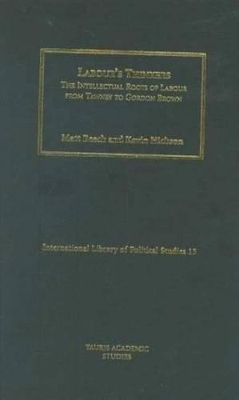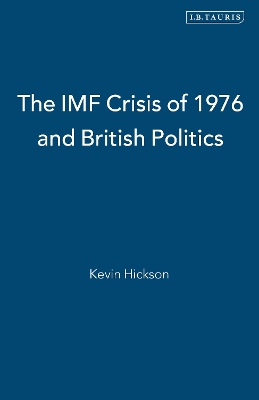International Library of Political Studies
3 total works
v. 13
"Labour's Thinkers" seeks to examine the key ideas emphasised by the twelve individuals whom the authors judge to have made the most significant development to the political thought of the Labour Party since the 1930s. Hickson and Beech argue the Labour Party is a party of values but often not of ideas. The number of people involved in the serious discussion of ideas in the Labour Party is relatively small and intellectuals are often viewed with suspicion in what is, or was, a party set up to represent the interests of the working classes. The formulation and development of ideas are therefore crucial to understanding the outcomes of the Labour Party's internal struggles and the basis of the party's appeal. "Labour's Thinkers" highlights influential and, at times, controversial figures involved in the battle of socialist ideas in the Labour Party thus exploring concepts, such as equality, liberty, community, power, the state, ownership and patriotism.
v. 3
The 1976 IMF crisis was a seminal event in modern British political and economic history. The seeds of the crisis were sown by the huge OPEC oil price shocks of 1972-3 leading to the potential meltdown of Britain's already weakened economy and seemingly confirming Britain's headlong decline as a major political and economic power. The government was seen as going 'cap in hand' to the International Monetary Fund (IMF) to head off disaster - an image which became a long-lasting political icon. Kevin Hickson has mined vital original source material, including interviews with leading players, to probe government economic thought and practice. He questions much received wisdom, especially that the crisis caused a basic shift to monetarist orthodoxy and right-wing economic liberalism - commonly known as 'Thatcherism' - and embraced by successive governments including New Labour.
v. 6
Is New Labour more style than substance? Are its policies merely driven by pragmatism? Little has been published on the party's core ideas, the very existence of which is contested. Matt Beech traces the ideological roots of the Labour Party from its nineteenth century origins in the Labour Movement, through the twentieth century, until the years under Tony Blair. He claims that New Labour in power evolved as a revisionist social democratic government and traces its search for new political ideas both to the New Right and Old Labour. Using interviews with former Labour politicians, advisers and academics, he presents an original and comprehensive analysis of Labour's political philosophy. "The Political Philosophy of New Labour" is an original and timely examination of the roots of Labour's intellectual history.


